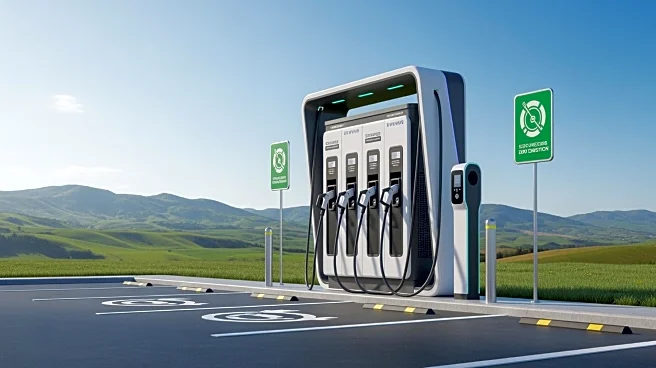What's Happening?
The European Union is making significant progress towards its zero-emission goals, driven by strong regulatory standards and technological innovation. The EU's commitment to reducing CO2 emissions for
new passenger cars by 2035 is one of the most ambitious climate targets globally. However, challenges remain in securing the battery supply chain and executing a massive workforce shift. The EU is currently a net exporter of electric vehicles, but maintaining this edge requires concerted efforts to secure battery production capacity. Workforce re-skilling programs are essential to align skills with the demands of the new electromobility ecosystem.
Why It's Important?
The EU's transition to zero-emission vehicles is crucial for achieving climate targets and reducing greenhouse gas emissions. The success of this transition has significant implications for the global automotive industry, influencing market dynamics and competitive positioning. Securing the battery supply chain is vital for maintaining industrial competitiveness and avoiding reliance on imports. Workforce re-skilling is necessary to ensure a 'just transition' that supports economic growth and job creation. The EU's progress serves as a model for other regions aiming to decarbonize their transport sectors.
What's Next?
The EU will continue to focus on policy certainty and financial support for domestic battery manufacturing. Scaling workforce re-skilling programs will be critical to converting market momentum into a complete zero-emission future. Stakeholders will monitor the impact of regulatory standards on EV adoption and infrastructure development. The EU's efforts may influence global policy discussions on climate action and sustainable transportation, encouraging other regions to adopt similar strategies.










